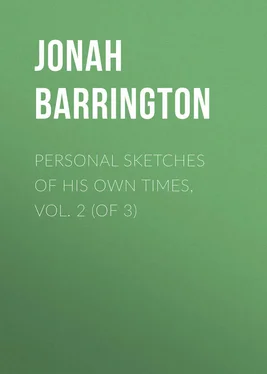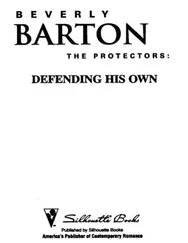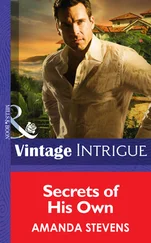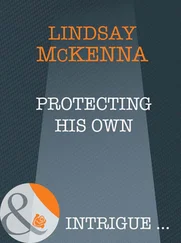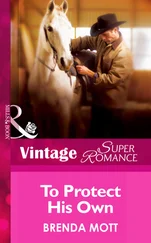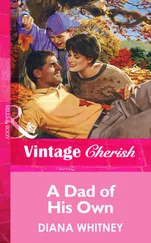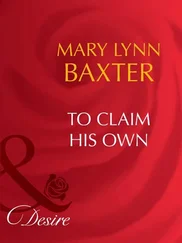Jonah Barrington - Personal Sketches of His Own Times, Vol. 2 (of 3)
Здесь есть возможность читать онлайн «Jonah Barrington - Personal Sketches of His Own Times, Vol. 2 (of 3)» — ознакомительный отрывок электронной книги совершенно бесплатно, а после прочтения отрывка купить полную версию. В некоторых случаях можно слушать аудио, скачать через торрент в формате fb2 и присутствует краткое содержание. Жанр: foreign_antique, foreign_prose, на английском языке. Описание произведения, (предисловие) а так же отзывы посетителей доступны на портале библиотеки ЛибКат.
- Название:Personal Sketches of His Own Times, Vol. 2 (of 3)
- Автор:
- Жанр:
- Год:неизвестен
- ISBN:нет данных
- Рейтинг книги:4 / 5. Голосов: 1
-
Избранное:Добавить в избранное
- Отзывы:
-
Ваша оценка:
- 80
- 1
- 2
- 3
- 4
- 5
Personal Sketches of His Own Times, Vol. 2 (of 3): краткое содержание, описание и аннотация
Предлагаем к чтению аннотацию, описание, краткое содержание или предисловие (зависит от того, что написал сам автор книги «Personal Sketches of His Own Times, Vol. 2 (of 3)»). Если вы не нашли необходимую информацию о книге — напишите в комментариях, мы постараемся отыскать её.
Personal Sketches of His Own Times, Vol. 2 (of 3) — читать онлайн ознакомительный отрывок
Ниже представлен текст книги, разбитый по страницам. Система сохранения места последней прочитанной страницы, позволяет с удобством читать онлайн бесплатно книгу «Personal Sketches of His Own Times, Vol. 2 (of 3)», без необходимости каждый раз заново искать на чём Вы остановились. Поставьте закладку, и сможете в любой момент перейти на страницу, на которой закончили чтение.
Интервал:
Закладка:
The Collector of the Customs of Dublin, the Honourable Francis Hutchinson, fought the Right Honourable Lord Mountnorris: – a hit. Cum multis aliis quæ nunc enumerare longum est.
The reader of this dignified list (which, as I have said, is only a very short abridgment 3 3 Two hundred and twenty-seven memorable duels have actually been fought during my grand climacteric.
) will surely see no great indecorum in an Admiralty Judge having now and then, when required so to do, exchanged broadsides , more especially as they did not militate against the law of nations, and no ghost was the consequence.
However, it must be owned that there were occasionally peaceable and forgiving instances among the barristers. – A brave, thrice-proven, but certainly capricious individual, Mr. Curran, was whipped by a very savage nobleman, Lord Clanmorris; and another eminent barrister was said to have had his eye saluted by a messenger from a gentleman’s lips in the body of the House of Commons. – Yet both those little incivilities were arranged very amicably, and without the aid of any deadly weapon whatsoever, I suppose for variety’s sake. But the people of Dublin used to observe, that a judgment came upon Counsellor O’Callaghan, for having kept his friend, Mr. Curran, quiet in the horse-whipping affair, inasmuch as his own brains were literally scattered about the ground by a Galway attorney very soon after he had turned pacificator.
To speak after the manner of a Bulletin : – “In my time, the number of killed and wounded among the bar was very considerable. – The other learned professions suffered much less.”
It is nearly incredible what a singular passion the Irish gentlemen (though in general excellent-tempered fellows) formerly had for fighting each other and immediately becoming friends again. A duel was indeed considered a necessary piece of a young man’s education , but by no means a ground for any future animosity with his opponent: – on the contrary, proving the bravery of both, it only cemented their friendship.
One of the most humane men existing, an intimate friend of mine, and a prominent and benevolent public character, but who (as the expression then was) had frequently played both “hilt to hilt” and “muzzle to muzzle,” in desperate rencontres, was heard endeavouring to keep a little son of his quiet who was crying for something: – “Come, now, do be a good boy! Come, now,” said my friend, “don’t cry, and I’ll give you a case of nice little pistols to-morrow. Come, now, don’t cry, and we’ll shoot them all in the morning.” – “Oh, yes! yes! papa! we’ll shoot them all in the morning!” responded the child, drying his little eyes and delighted at the notion.
I have heard Sir Charles Ormsby, who affected to be a wit, though at best but a humourist and gourmand , liken the story of my friend and his son to a butcher at Nenagh, who in a similar manner wanted to keep his son from crying, and effectually stopped his tears by saying, – “Come, now, be a good boy! don’t cry, and you shall kill a lamb to-morrow! now, won’t you be good?” – “Oh yes, yes,” said the child, sobbing; “Father, is the lamb ready ?”
Within my recollection, this national relish for fighting was nearly universal, – originating (I think) in the spirit and habits of former times. When men had a glowing ambition to excel in all manner of feats and exercises, as their forefathers had done, they naturally conceived that single combat in an honest way (that is, not knowing which would be perforated) was the most chivalrous and gentlemanly of all possible accomplishments; and this idea gave rise to an assiduous cultivation of personal tactics, and dictated laws for carrying them into execution with regularity, honour, and dispatch, among the nobility and gentry of that punctilious nation.
About the year 1777, Fire-eating was in great repute in Ireland. No young fellow could finish his education till he had exchanged shots with some of his friends or acquaintances. The first questions asked as to a young man’s respectability and qualifications (particularly when he proposed for a lady-wife) were, “What family is he of?” – “Did he ever blaze ?” – His fortune was then the last inquiry; because the reply was seldom satisfactory.
Tipperary and Galway were the ablest schools of the duelling science. Galway was most scientific at the sword: Tipperary most practical and prized at the pistol: Mayo not amiss at either: Roscommon and Sligo had many professors and a high reputation in the leaden branch of the pastime.
When I was at the university, Jemmy Keogh, Buck English , 4 4 The celebrated Buck English was expelled for killing by foul play, and had like to be hanged. The “Fire-eaters” outlawed him. – Foul play was never known to occur in that society – save in this instance. English was saved, on his trial, by one juror holding out against his eleven brethren: – however, as they could not agree, Baron Hamilton ordered them all to be packed in turf kishes, conveyed on cars to the boundary of the county, twenty-seven miles off, and there discharged on foot. At the ensuing assizes all the witnesses against English were duly disposed of – none appeared – and he was acquitted of course.
Cosey Harrison, Crowe Ryan, Reddy Long, Amby Bodkin, Squire Fulton, Squire Blake, Amby Fitzgerald, Terry Magrath, and some others, were supposed to understand the points of honour better than any men in Ireland, and were constantly referred to. – Terry Magrath especially was counted a very good opinion.
In the North, the Fallons and the Fentons were the first hands at it; and most counties could then boast their regular point-of-honour men. The late chief justice of the common pleas was supposed to understand the thing as well as any gentleman in Ireland, and was frequently referred to by the high circles.
In truth, these oracles were in general gentlemen of good connexions 5 5 There was an association in the year 1782, (a volunteer corps) which was called the “Independent Light Horse.” They were not confined to one district, and none could be admitted but the younger brothers of the most respectable families. They were all both “hilt and muzzle adepts;” – and, that no member might set himself up as greater than another, every individual of the corps was obliged, on entering, to give his honour “that he could cover his fortune with the crown of his hat, and had exchanged a shot or thrust before he was ballotted for.” Roscommon and Sligo then furnished some of the finest young fellows (fire-eaters) I ever saw: their spirit and decorum were equally admirable, and their honour and liberality conspicuous on all occasions.
and most respectable families, otherwise nobody would either fight or consult them.
Every family had then a case of hereditary pistols, which descended as an heir-loom, together with a long silver-hilted sword, for the use of their posterity. Our family pistols, denominated pelters , were brass (I believe my second brother has them still): the barrels were very long and point-blankers . They were included in the armoury of our ancient castle of Ballynakill in the reign of Elizabeth, (the stocks, locks, and hair-triggers were, however, modern,) and had descended from father to son from that period: one of them was named “ sweet lips ,” the other “ the darling .” The family rapier was called “ skiver the pullet ” by my grand-uncle, Captain Wheeler Barrington, who had fought with it repeatedly and run through different parts of their persons several Scots officers, who had challenged him all at once for some national reflection. It was a very long, narrow-bladed, straight cut-and-thrust, as sharp as a razor, with a silver hilt, and a guard of buff leather inside it. I kept this rapier as a curiosity for some time; but it was stolen during my absence at Temple.
Читать дальшеИнтервал:
Закладка:
Похожие книги на «Personal Sketches of His Own Times, Vol. 2 (of 3)»
Представляем Вашему вниманию похожие книги на «Personal Sketches of His Own Times, Vol. 2 (of 3)» списком для выбора. Мы отобрали схожую по названию и смыслу литературу в надежде предоставить читателям больше вариантов отыскать новые, интересные, ещё непрочитанные произведения.
Обсуждение, отзывы о книге «Personal Sketches of His Own Times, Vol. 2 (of 3)» и просто собственные мнения читателей. Оставьте ваши комментарии, напишите, что Вы думаете о произведении, его смысле или главных героях. Укажите что конкретно понравилось, а что нет, и почему Вы так считаете.
